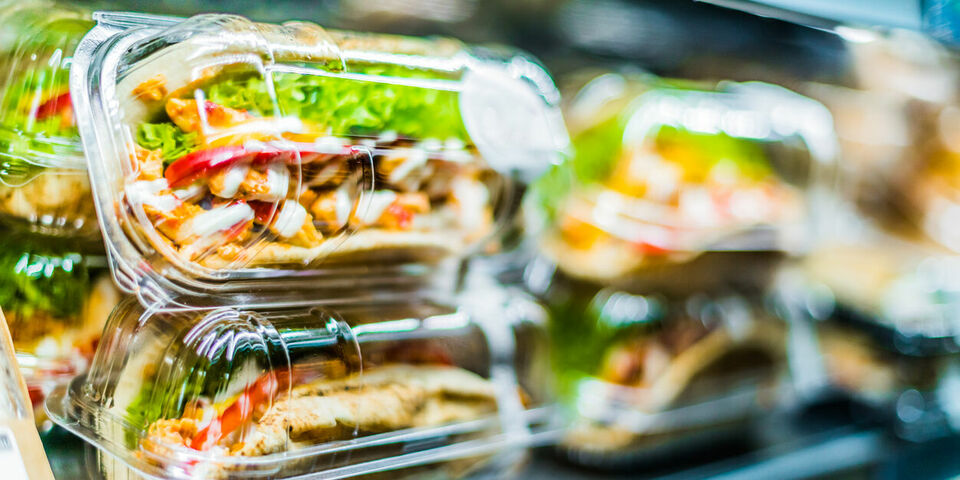Paying extra for the plastic holding your sandwich or smoothie
As of July 1st you'll pay a surcharge at TU/e's canteens when you buy an item packaged in disposable plastic. Owing to new European guidelines, 10 eurocents is being added to the price of a cup and 25 eurocents to a price of a small food container. Rather not pay? Caterer Appèl is offering crockery as a sustainable alternative – you'll need to return it afterwards – or you can have your own cup, bowl or plate filled.
Every day in the Netherlands we throw away 19 million (Dutch only) of them away: cups and food packaging made with plastic. To reduce this number, new European legislation relating to single use plastics comes into force as of July 1st.
At takeout and delivery businesses and supermarkets as of this coming Saturday customers will pay a surcharge for disposal plastic containing (ready-to-eat) food and drink items. A cup will cost you 10 eurocents more, and a small food container 25 eurocents.
When you buy a salad, sandwich or smoothie from July 1st in the canteen of, say, Flux, Atlas or Vertigo, this means you'll pay extra for the disposable packaging. Not that Appèl will be pocketing this revenue, it will be donated to the Social Accent foundation (Dutch only).
Crockery
As it happens, the canteens at TU/e don't fall neatly under the definition of a 'takeout location' as used in the new legislation, Lieke Jansen Venneboer of Appèl explains. “These are what are called hybrid sites. We offer you both a takeout option and the choice of eating or drinking on our premises.”
This means that customers also have the choice of ‘real’ crockery instead of disposable packaging. Then, as of January 1st 2024 Appèl will switch entirely to crockery. From that date on, the use of disposable cups and food containers will be prohibited by law for all customers, whether they are eating in or taking out.
Bring your own
For all customers, there will always be the option of bringing your own cup or plate with you. This option to bring your own does, however, present Appèl with some headaches, says Jansen. Keeping the portion size uniform, for example, is going to be difficult when customers can bring along tableware of all kinds and sizes. “Should we charge a higher price when the cup is extra large?” they wonder.
Moreover, some meal items – think of a cup of yoghurt with fruit and muesli – cannot be placed ready for sale if the customer wants to take them away in their own cup or bowl. “That may mean that during our peak hours we'll need more serving staff.” It will all become clear in time.


Discussion